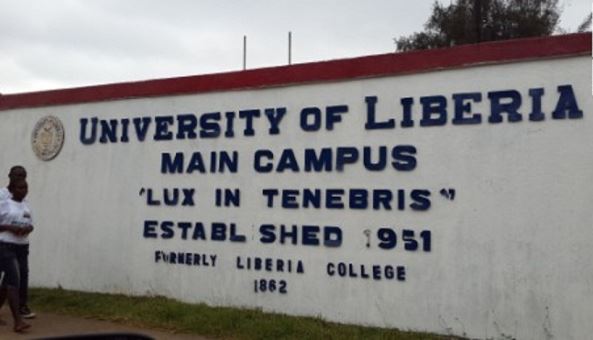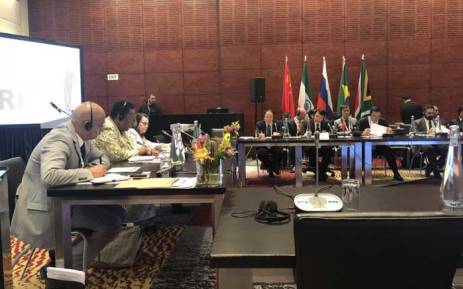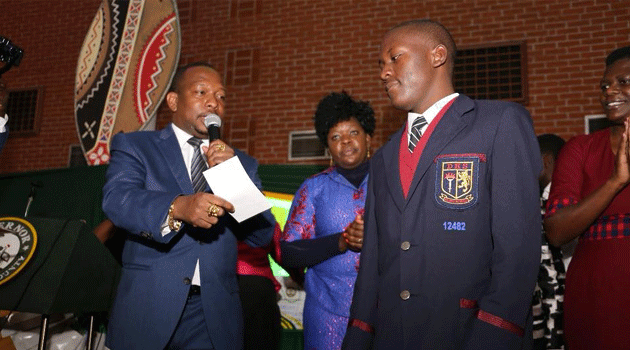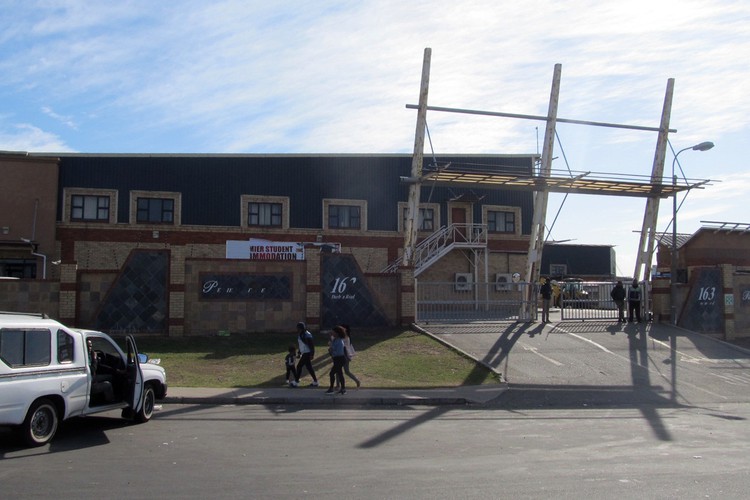Bongekile Macupe
With budget cuts and an infrastructure backlog at the basic education department, it may take a while before the schools that were burnt during protests are rebuilt or refurbished.
In Mpumalanga six schools have been burnt since April — four of them in one week in June. The estimated cost of fixing the six schools is R10.2-million, which has not been budgeted for, according to a report prepared by the Mpumalanga department of education.
The situation is exacerbated by the fact that the national basic education department does not have money put aside to fix these schools.
“The basic education sector does not keep money to replace schools which have been deliberately damaged,” said the department’s spokesperson, Elijah Mhlanga. “We have never had to operate in that manner. The burning of schools is a new phenomenon … and it is very disturbing.”
In 2016, the South African Human Right Commission held national investigative hearings into the effect of protests on the right to a basic education.
In its report the commission said it was apparent that some protesters deliberately target schools with the intention of drawing attention to a problem unrelated to basic education.
“Undermining basic education through the disruption of schools appears to be an effective mechanisms to elicit immediate high-level government reaction. In terms of this reasoning, undermining the right to a basic education is seen as ‘fair game’ and as a result the trend is on the increase,” reads the report.
Mhlanga said rebuilding or refurbishing schools would be a lengthy process. “We have already been told that there will be a budget cut in terms of school infrastructure allocation over the next three years. So this means the schools will remain in their present condition for a lot longer while we scramble to find the money to rebuild them, especially where the damage was extensive.”
A R3.5-billion cut for school infrastructure was announced in February by Malusi Gigaba when he was finance minister.
The cost of rebuilding or refurbishment, which run into millions, does not include the furniture, textbooks and stationery lost in the fires.
Last year the Mpumalanga education department spent R7 269 290 — an unplanned expense — on fixing five schools burnt in Bushbuckridge, Mpumalanga, when residents protested for a tarred road.
Mhlanga said schools had been burnt in Mpumalanga, the Eastern Cape, the Northern Cape, Limpopo and North West in the past three years.
Freddy Sepeng, the spokesperson for North West’s basic education department, said nine schools in the province were destroyed by fire in the past three years. This includes classrooms, laboratories, libraries, offices, toilets and even mobile classrooms. He said the costs of repairing the schools was estimated at more than R100-million.
As a remedial action, the department had provided mobile classrooms at the schools. The cost of doing so was difficult to determine because enrolment at each school differed.
The provincial department does not have a contingency budget for rebuilding the schools but Sepeng said doing so had been prioritised for the mid-term budget of 2018-2019.
In the Northern Cape only two had been burnt in the past three years but even that has not come cheap.
Eleven classrooms at Sonskyn Intermediate School in Marydale were burnt down in May.
Geoffrey van der Merwe, the spokesperson for the provincial department of education, said the school was waiting for the delivery of 11 mobile classrooms the department had procured for R10-million.
In the meantime, pupils are being taught in community and church halls. In 2016, six classrooms, an administration block, storerooms and toilets were burnt down at JJ Booysen Primary School in Loxton. The school is using mobile classrooms, which cost the provincial department R1.5-million. Van der Merwe said a new school would be built during the 2019-2020 financial year, at a cost of R46-million.
Twenty-five schools have been damaged by fire in the Eastern Cape in the past three years. The provincial department spent R42 464 000 on fixing nine of them, providing mobile classrooms and erecting fences.
Malibongwe Mtima, the spokesperson for the provincial department, said some of the schools had not been fixed because they had been merged with other schools as a result of already dwindling enrolment numbers.
Mtima said that, in instances where the damage was minor, the schools had used their maintenance budgets to do the repairs.
In Limpopo, in 2016 alone, 31 schools were burnt down during violent protests in Vuwani and Malamulele about changes to municipal demarcations.
The Limpopo department of education did not respond to questions sent last week.
Speaking about the situation, Mhlanga said that one school in the area, VhaFamadi Secondary School, had been rebuilt from scratch by a private company in the area.
He added that the treasury had given the Limpopo basic education department R188-million to repair the schools.
Limpopo’s provincial basic education department had spent R22-million on 76 mobile classrooms, transported from Gauteng.
“Learners and teachers will be exposed to the elements for a much longer period. What is troubling is that people burn schools where their own children go. It is always the children of the very community who suffer as a result of the damage to the property,” Mhlanga said.
He said the wish is that people found guilty of burning schools be given long jail sentences.
“It would be better if there were to be specific sentences for these people, say a minimum of 10 years, for somebody found guilty of destroying a school on purpose. This madness has to stop and we hope the justice system will be adjusted somewhat to help us clamp down on this behaviour of targeting schools during protests.”
It has not been easy to make arrests, let alone secure convictions. The spokespersons for the provincial education departments said that police fail to make arrests because the schools are usually burnt at night or during protests. And when suspects are arrested, they are released because of a lack of evidence.
The human rights commission report said that the police do not have a clear or uniform approach for dealing with protests that threaten schools. – M&G










